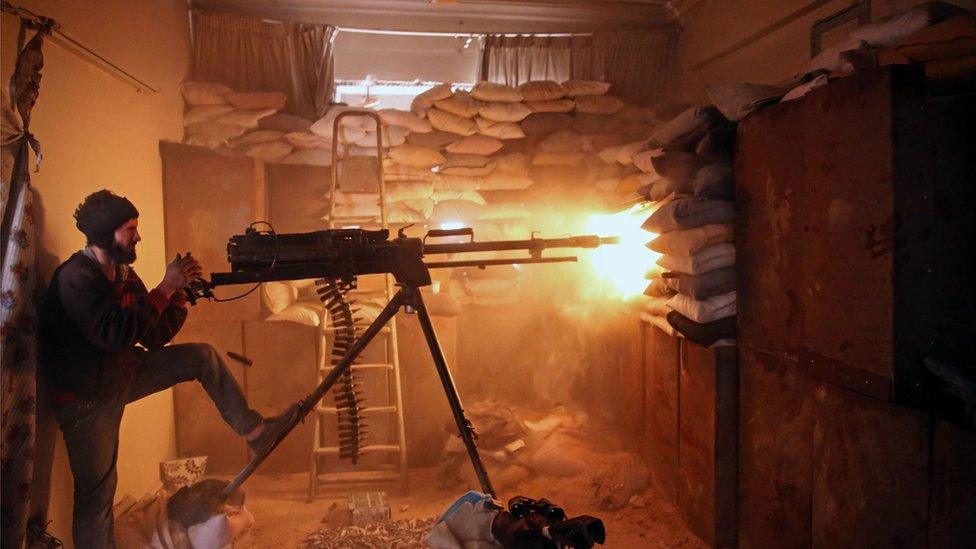'Stray Syrian anti-aircraft missile' hits northern Cyprus
- Published
The missile came down in wooded area north of the city of Nicosia
A stray Russian-made missile apparently launched by Syria hit the self-declared Turkish Republic of Northern Cyprus overnight, officials say.
Foreign Minister Kudret Ozersay said the air defence missile was thought to have been launched during suspected Israeli air strikes on Syria.
The projectile struck a mountainside north of Nicosia, 225km (140 miles) from the Syrian coast, sparking a fire.
At least four civilians were reportedly killed in the air strikes on Syria.
The Syrian military said it had "confronted" Israeli warplanes that fired missiles at military positions near the capital Damascus and the central city of Homs.
No casualties were reported after the stray missile hit the Tashkent region of northern Cyprus, about 20km (12 miles) from the city of Nicosia, at about 01:00 on Monday (22:00 GMT on Sunday).
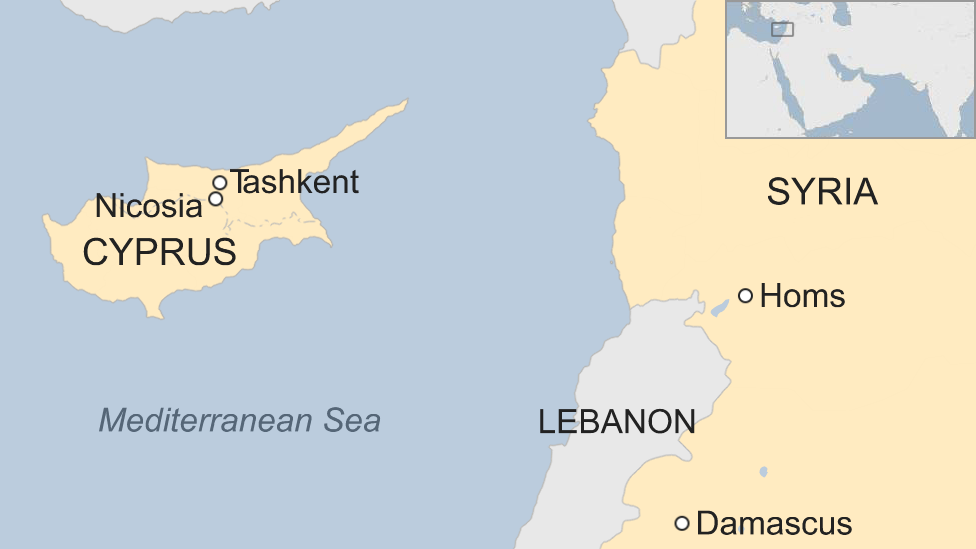
But residents told Cypriot media they had seen a light in the sky and then heard three loud explosions.
"The first assessment is that a Russian-made missile... which was part of the air defence system that took place last night in the face of an air strike against Syria, completed its range and fell into our country after it missed," Mr Ozersay wrote in a post on Facebook.
The explosions were likely to have happened before impact because there was no crater, he added. "The pieces that fell to several different points prove that the missile exploded in the air before it crashed."
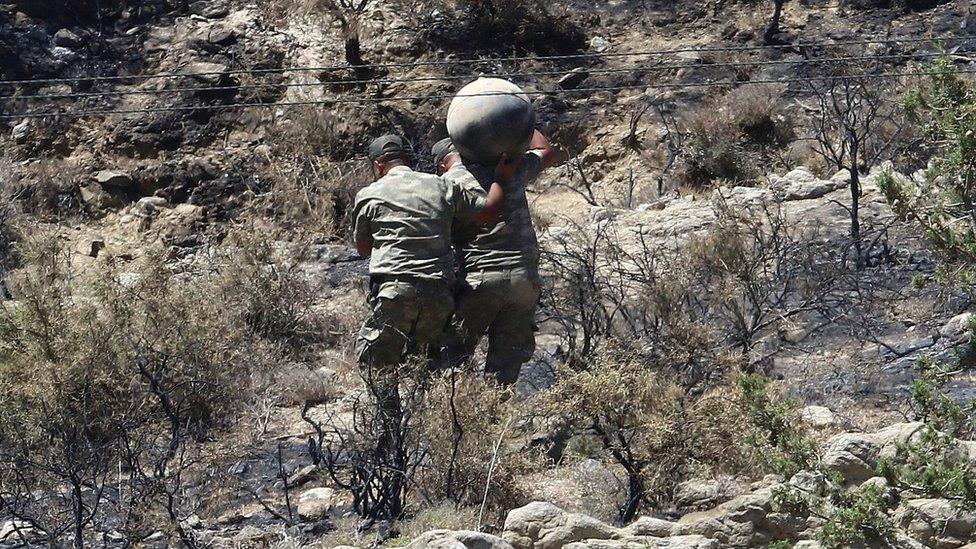
Turkish Republic of Northern Cyprus military personnel took the missile debris away for analysis
Mr Ozersay also said the markings on the debris recovered from the scene matched those found on pieces of a Russian-made S-200 air defence missile that hit Gazientep in Turkey in July 2018, external.
"This is one of the bad consequences of the war in the region," said Mustafa Akinci, the president of the Turkish Republic of Northern Cyprus.


There is no confirmation yet as to what exactly landed in Cyprus, but reports suggest it was an S-200 surface-to-air missile. This is a Soviet-era system that was supplied to Syria by Moscow. Indeed, Russian advisers helped to refurbish Syria's remaining S-200 network when they moved their own forces into the country in 2015 to ensure the survival of President Bashar al-Assad's regime.
The S-200 has a range of some 300km, so an errant missile could just about reach the island. What goes up must come down; but it is also a small reminder that Israel's air campaign has wider regional ramifications too. Russia - which along with Iran is Mr Assad's closest ally - remains deeply uneasy about Israeli strikes in Syria, but it has so far done little to thwart them.

The Syrian Observatory for Human Rights, a UK-based monitoring group, reported that the Israeli warplanes had targeted bases linked with Iranian and Iran-backed forces supporting the Syrian government in the country's eight-year civil war.
It said the missiles had hit a research centre and a military airport in the Homs area used by Iranian personnel and fighters from Lebanon's Hezbollah movement.
Syrian state media has released footage of what appears to be missiles being intercepted
Near Damascus, a base hosting Iran's Islamic Revolution Guards Corp (IRGC) and a research facility in Jamraya were struck, it added.
Syria's state-run Sana news agency said four civilians had been killed, while the SOHR said six civilians and nine militia fighters, eight of them foreign nationals, died.
The Israeli military declined to comment on the reports.
- Published2 June 2019
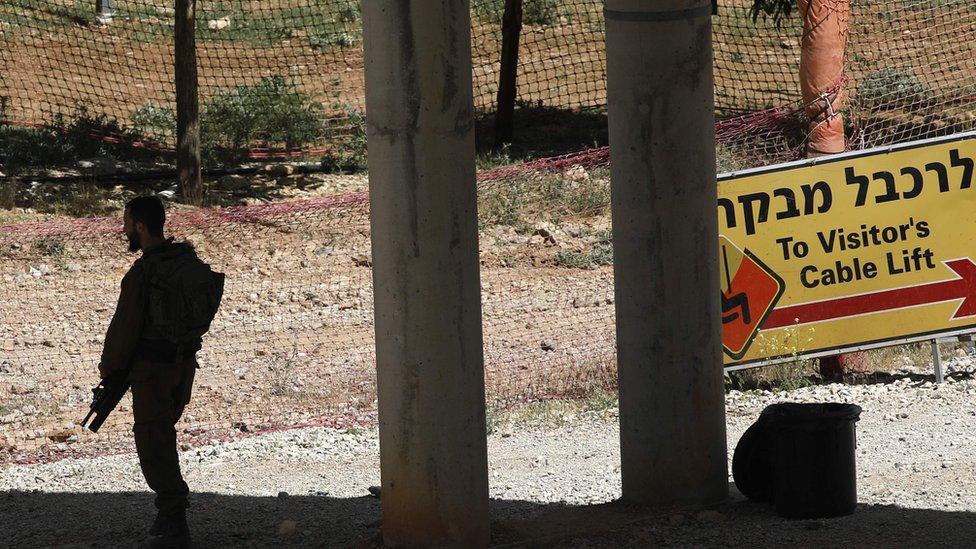
- Published21 January 2019
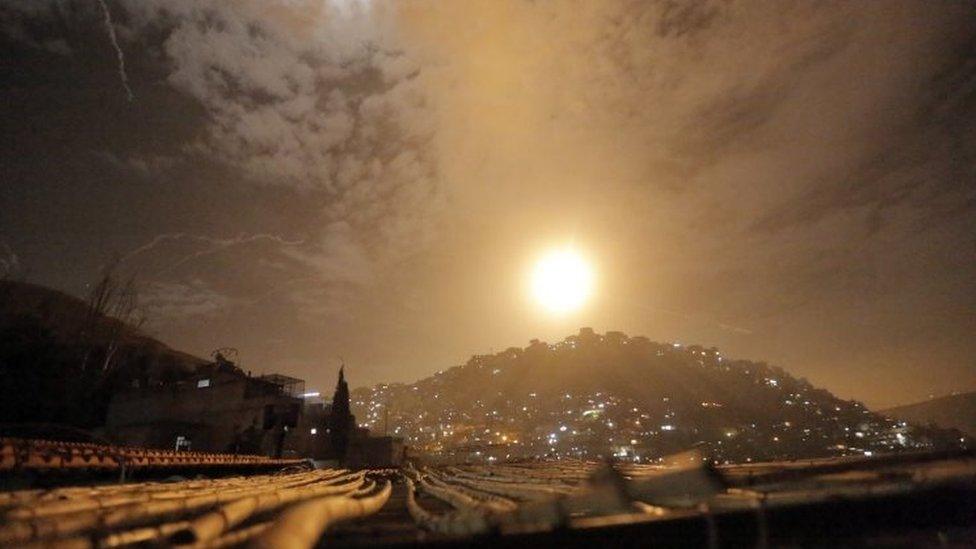
- Published7 April 2017
